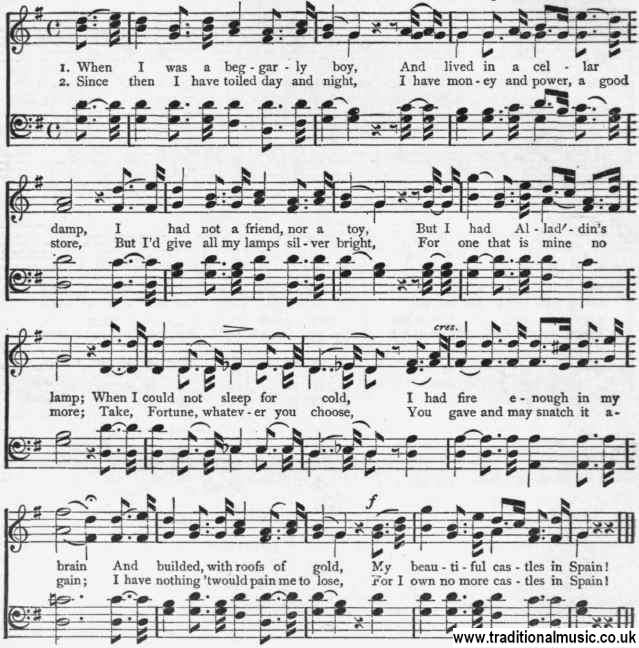Favorite Songs and Hymns For School and Home, page: 0094
450 Of The World's Best Songs And Hymns, With Lyrics & Sheet music for voice & piano.
| Share page | Visit Us On FB |
|
94
There are clear indications that up to the time of the Reformation music was in continual progress in England. But, unfortunately, the Wars of the Roses and the ruthless destruction which accompanied the suppression of the monasteries, the only homes of art ol all kinds in those rough, savage days, have obliterated all but the rarest indications. But it is certain, not only from the treatises and compositions of the four�teenth and fifteenth centuries that have survived, but from the splendor of the English school, when we again encounter it about 1520, that in the interval our music had been growing and flourishing, as everything |
in England grows and flourishes when it really seizes hold of the English people. Palestrina (from 1550 to 1600) no doubt wrote more nobly than any of his contem�poraries, including our own Tallis and Byrd; but it is not too much to say that the English predecessors of Tallis and Byrd� Edwards, Redford, Shepperd, Tye, White, Johnson and Marbecke, who date from 150a to 1550, were much in advance of any of the prede�cessors of Palestrina on the Continent. For they were their equals in science and they far surpass them in tunefulness and what I may call the common sense of their music. Their compositions display a " sweet |
||
|
CASTLES IN SPAIN.
[ALADDIN.] |
V. Bellini. JamEs Russell Lowell. |
||
 |
|||
|
reasonableness," a human feeling, a suitability to the words and a determination to be something more than a mere scientific and mechanical puzzle, which few, if anv, of the Continental composers before 1550 can be Said to exhibit. I have only to mention the familiar title of the charming madrigal, " In going to my lonely bed," to convince many of this truth. Such was our position in the first half of the sixteenth cen�tury ; and the half century following is the splendid time of English music, in which the illustrious names �f Morley, Weekes, Wilbye, Ford, Dowland and |
Orlando Gibbons shine like stars. These names may be unknown to some of you, but the men existed and their works live�live not alone by reason of their science, their pure part-writing and rich harmonies, but by the stream of beautiful melody which flows through all their works�melody which is ear-haunting-even to our modern and jaded natures and which has no parallel elsewhere. Those of you who have heard such works as the " Silver Swan," by Gibbons, and " Since first I saw your face," by Ford, will, I am sure, endorse my favorable opinion.�Arthur Sullivan*, |
||